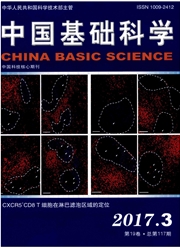

 中文摘要:
中文摘要:
土壤微生物是这块地里的 allelopathic 效果的最重要的决定因素之一。然而,在生物侵略测试 allelopathy 的角色的大多数研究没考虑土壤微生物的角色。这里,我们测试了假设能降级的土壤微生物 allelochemicals 可以由改编随着时间的过去在土壤积累因此增加 allelochemicals 的降级并且在生物侵略减轻 allelopathic 效果。是期望,土壤微生物显著地减少了在九侵略植物种的八的叶 leachates 的 allelopathic 效果学习了。另外, Ageratina adenophora 在土壤显示出更低的 allelopathic 效果与长或在中间侵略历史比那些在有短侵略历史的土壤。侵略者的二主要 allelochemicals 与在土壤增加侵略历史更快被降级。相应地,土壤微生物的生物资源和活动与短侵略历史比在那在有长侵略历史的土壤是更高的。我们的结果显示土壤微生物可以逐渐地适应 Ageratina 的 allelochemicals 并且减轻它的 allelopathic 效果并且因此支持上述假设。当在生物侵略测试 allelopathy 或新奇武器假设的角色时,考虑土壤微生物的效果是必要的。
 英文摘要:
英文摘要:
Soil microbes are one of the most important determinants of allelopathic effects in the field. However, most studies testing the role of allelopathy in biological invasions did not consider the roles of soil microbes. Here we tested the hypothesis that soil microbes which can degrade allelochemicals may accumulate in soils over time by adaptation and therefore increase the degradation of allelochemicals and alleviate the allelopathic effects in biological invasions. As expected, soil microbes signifi- cantly decreased the allelopathic effects of leaf leachates of eight in the nine invasive plant species studied. In addition, Ageratina adenophora showed lower allelopathic effects in soil with long or intermediately invasion history than those in soil with short invasion history. The two main allelo- chemicals of the invader were degraded more rapidly with increasing invasion history in the soil. Correspondingly,biomass and activity of the soil microbes were higher in the soils with long invasion history than in that with short invasion history. Our results indicate that soil microbes may graduaUy adapt to the allelochemicals of Ageratina and alleviate its allelopathic effects and thus support the above hypothesis. It is necessary to consider the effects of soil microbes when testing the roles of allelopathy or the novel weapons hypothesis in biological invasions.
 同期刊论文项目
同期刊论文项目
 同项目期刊论文
同项目期刊论文
 No evidence for evolutionarily decreased tolerance and increased fitness in invasive Chromolaena odo
No evidence for evolutionarily decreased tolerance and increased fitness in invasive Chromolaena odo Invasive Eupatorium adenophorum suffers lower enemy impact on carbon assimilation than native congen
Invasive Eupatorium adenophorum suffers lower enemy impact on carbon assimilation than native congen Synergistic interactions of CO2 enrichment and nitrogen deposition promote growth and ecophysiologic
Synergistic interactions of CO2 enrichment and nitrogen deposition promote growth and ecophysiologic A quicker return energy-use strategy by populations of a subtropical invader in the non-native range
A quicker return energy-use strategy by populations of a subtropical invader in the non-native range Noxious invasive Eupatorium adenophorum may be a moving target: Implications of the finding of a nat
Noxious invasive Eupatorium adenophorum may be a moving target: Implications of the finding of a nat The evolution of increased competitive ability, innate competitive advantages, and novel biochemical
The evolution of increased competitive ability, innate competitive advantages, and novel biochemical 期刊信息
期刊信息
